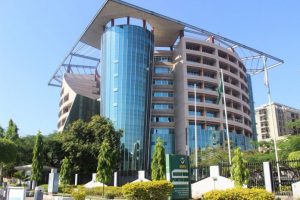5G: NCC Canvasses for Control over Mining, Usage of Data

The Nigeria Communication Commission (NCC) has canvassed for the exercise of authority as well as control over the mining and usage of data to increase the value of data and minimise data-related costs and risks.
The Executive Vice-Chairman (EVC) of NCC, Prof. Umar Danbatta, made this position known in his keynote address at the Nigeria Digital Sense Forum, themed: “5G: Data Governance, Safety and Security in Nigeria” organised by ITRealm in Lagos on Thursday.
Danbatta, who was represented by Chukwudi Diugu, head of New Media and Information Security at the NCC, said that data is critical to the digital economy and all must prioritise building robust legal frameworks for data governance.
He posited that we must embrace the transformative potential of 5G and also prioritise safety concerns.
According to him, the amount and speed of data generated using 5G technology was unprecedented, as such, the need to always prioritise consumer privacy, transparency and ethical data use.
In his words: “By cultivating trust and handling data responsibly, we can unlock the full potential of 5G technology and promote innovation in Nigeria.
“We know Nigeria is a highly technology-driven country, and the advent of 5G technology has opened up immense opportunities and challenges, especially regarding data governance, safety, and security.
“5G technology has enhanced capabilities that will provide superior communications services for the socio-economic development of Nigeria and facilitate the attainment of a National Digital Economy.’’
He maintained that we must consider the challenges that come with it, particularly in protecting user data privacy and safety.
Danbatta highlighted that to ensure the security and protection of networks and consumers, the NCC Act mandates its licensees to prevent their network facilities or services from being used for illegal purposes.
EVC NCC stated further that the act prevented licensees’ networks from being used in, or in relation to, the commission of any offence under any law in operation in Nigeria.
Accordingly, he said, licensees were required to assist the commission and other law enforcement agencies in preventing crime in Nigeria.
Danbatta hinted that NCC is committed to fostering a culture of safety and security while rolling out the 5G technology, adding that it is achieved through ethical data governance practices, robust security measures, and regulatory frameworks.
He affirmed that the successful implementation of 5G technology also depended on a collective commitment to data governance, safety, and security.
The NCC boss pointed out that in order to build a safer, secure, and more inclusive digital ecosystem, all must work collaboratively, including government, regulators, operators, service providers, and individual users to create a secure and sustainable environment for this technology to thrive.
The President of Nigeria Computer Society (NCS), Adesina Shodiya, who was the chairman of the occasion, said that all should ensure the safe use of the internet and technology, adding that one must think of how to use it to enhance career, irrespective of the profession.
Shodiya, however, noted that no system was devoid of attacks but it was important to be conscious while using technology and the internet.
In his presentation on 5G Open Access and the Role of Citizens, the Chief Executive Officer of Wisdom Computers, Francis Uzor, harped on the roles of citizens.
Uzor cited advocacy, active digital citizenship, monitoring and accountability, and digital inclusion among others as roles of citizens.
In his welcome address, the Lead Consulting Strategist, Digital Sense Africa, Remmy Nweke, said that the forum in its 14th edition had remained an annual rallying point for internet stakeholders.
Nweke explained that the stakeholders in the country come together to discuss and proffer solutions to improving challenges around internet governance, security and the socio-economic impact of internet usage.
He stated, however, that the focus was on students, youths, women and community-based organisations.
